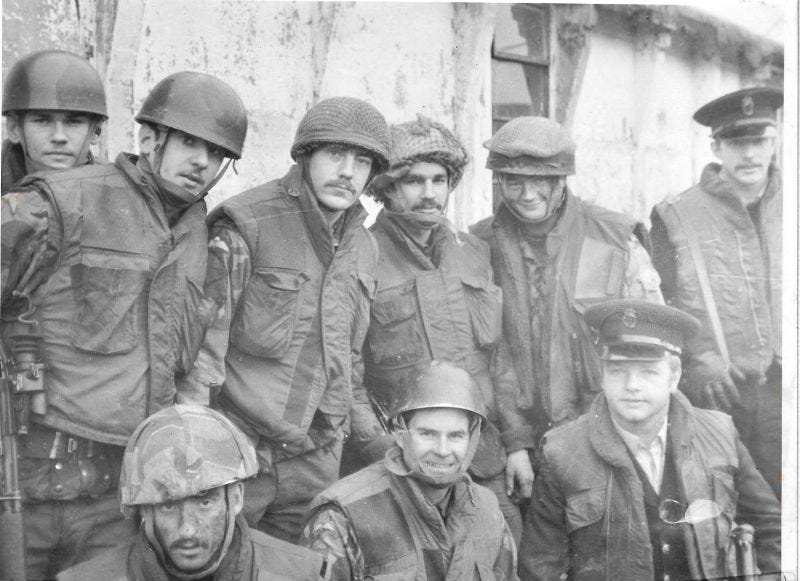This article was initially published on LinkedIn on 13 April 2022. It is republished here unexpurgated, despite the demise of the battalion since it originally appeared. The supplement below explains why.
The Azov Battalion. A thorn in the side or a spearhead? Both. Is it, or isn’t it right-wing? On balance, it is. Never mind how many of its recruits aren’t, it is. Has it engaged in the past in war crimes? Probably. Is it a bad organisation? Yes, if you want high ideals of liberal sentiment and racial equality among your armed forces; no, if you want them to win.
The Azov Battalion is the prime spearhead for Ukrainian resistance in Donbas to the Russian invasion. And it is, one might argue, one of the prime reasons for that invasion. Should Kyiv be knowingly incorporating neo-Nazis into its armed forces? No, if they want high ideals of liberal sentiment and racial equality among their armed forces; yes, if they want to win.
There’s an old saying: sooner the devil you know than the devil you don’t; and, if Russia’s the devil you don’t know, then maybe Azov is the “lesser of two evils.” If it’s evil, it’s nice to have it on your side. Perhaps. When you look at the photos of Roosevelt, Churchill and Stalin at Yalta and Potsdam, there is a kind of incongruity to the American, the Americo-Brit and the Russian seated together in good humour, and the aides behind them keeping a safe ‘social distance’. It’s as though the leaders talked to each other because they had to; and the aides didn’t, because they didn’t have to. But, without the Soviet Union in World War II, the Allies would have been hard pushed to beat Germany; that was proved after Brest-Litovsk in 1918, after which the German Empire was able to plough its entire war effort into the western front, where Siegfried was waiting with his washing. Only the Americans’ intervention was able to reset the balance in that little contretemps.
There’s little doubt that (or is it a little doubt whether?), hm, the Azov Battalion fights for an ideology. If Ukraine lacked an ideology in 2014, it’s got one now: survival. And it might transpire to be not just Ukraine’s. But what ideology are Russia’s troops fighting for? To defeat neo-Nazism? To prop up Russia’s oligarchs? To ensure the gas keeps flowing down Russia’s pipelines? To do what they’re ordered to do, out of discipline? Or out of fear of doing otherwise? It was Nazi ideology that got the Germans to within an ace of Stalingrad; it was Soviet ideology that stopped them at the city gates. Ideology is an immeasurable and unmeasurable factor in war. But what if you have the “wrong” one fighting on your side? Tricky.
NATO is aiding the Ukrainian cause with bullets and bombs; and some of its nationals have enlisted for the battle, but not its armies. That, it says right now, would be a step too far. After all, the Azov Battalion is there in Donbas, and they’re as good – as trained – as NATO troops might be (some of them by NATO troops). Except, they’re slightly fewer in number and: should we be using Az troops to beat back the Z troops? Pause for thought, and Japan has been thinking: it’s now changed its mind on whether the Azov Battalion are terrorists. Perhaps, like some others, they appreciate that, when your back’s up against the wall, you need everyone you can muster to mount the counter-charge. What their political mantras are is in that moment less relevant: “We’ll argue the toss after the victory.” If there is one, that is.
One Ukraine for everyone; everyone for Ukraine? One for all; all for one?
Mr Robin Horsfall, a former SAS commando, has written extensively on the Russo-Ukrainian War, and other matters, and less than sheepishly published this post on Sunday.
He invites me to share it, and so I do.
Winning!
If you want to defeat bad guys you had better have a few bad guys of your own.
Who Dares Shares!
Mr Horsfall is in the back row, third from the right.





